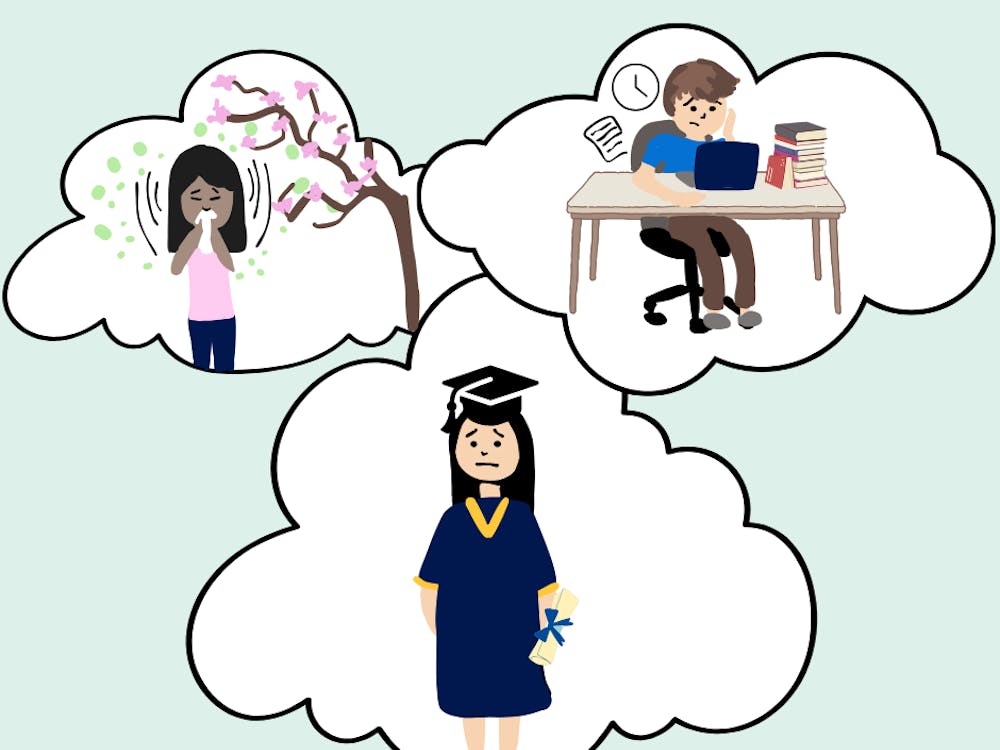The best advice I have received at the University came when I least expected it. Still floating in the honeymoon period of first year, when the perks and problems of college are still fresh and exciting, I found myself walking along Rugby Road one evening with a fourth-year.
On the other end of the collegiate spectrum, my more seasoned colleague stood in a unique position to lend some wise words. He confessed his jealousy for the four years of school I had ahead of me, rambling on as he recounted stories and antics from his past three years. After a moment of silence, he looked down and said, “One of these days, you’re going to realize that Charlottesville isn’t a part of the real world.”
At the time, I laughed semi-awkwardly and attributed his cryptic advice to the libations working their way through his body at 1 a.m. But for some reason, I haven’t been able to forget his words. I feel like I’m slowly realizing the meaning behind what he told me half a year ago.
At the University, or any college for that matter, most aspects of daily life are confined to school, social and extracurricular activities. An average day tends to occur within the limits of Grounds and the residences nearby.
Sure, there are exceptions. Family and friends from home float through one’s thoughts, and social media and technology help one stay connected to those outside of the city limits. The occasional road trip to a neighboring school or town may remind one of the world outside Charlottesville. The University bubble, though, persists.
Because we live in such a hectic bustle, anything outside of our school’s scope of influence becomes an afterthought. It wasn’t until October or November of last semester when I realized I hadn’t the slightest idea of important national and global issues, from the war in Syria to the Virginia gubernatorial election.
And the thing is, I didn’t need to.
At school, I live five minutes away from where I eat, which is five minutes away from where I go to class, which is five minutes away from where I go out. On top of the proximity, everyone I see on a daily basis — with the exception of University faculty and staff — lives in the same bubble as me. When I see a child, or even a group of parents walking around Grounds, I look upon them as if they are aliens, outcasts infiltrating my haven of delayed adolescence.
But there’s more to Charlottesville’s aura of fantasy. For the most part, as college students, we have the privilege of living free from the worries and distractions which plague most Americans older than 22. Nowhere else — and most likely at no other time in our lives — will we have the freedom to participate in so much pointless recreation at the expense of our bodies and bank accounts. It doesn’t make sense — at a place of learning, we engage in activities devoid of long-term benefits. Full disclosure: I am by no means complaining about this fact.
The problem? At this very place of learning, we should ideally be receiving education designed to send us into the world ready to meet and hurdle past any challenge in our path. Strangely though, college seems to shelter instead of expose, encapsulating us in a bubble isolated from the very world for which we need to prepare. Is the best place to prime a group of students for the supposed “real world” an idiosyncratic environment so distinctly different from said real world? Or are we simply abiding by a classic binge and purge model?
I will adamantly declare this does not serve as a criticism of the University’s system or creed. Like I said, students are free and oftentimes inclined to pursue avenues outside Grounds. But as far as I’m concerned, the fantasy-land absurdity that is a community of 14,000 students ranging from age 18 to 22 seems far from the “real world” I was supposed to enter when I came to the University half a year ago.
Aidan’s column runs biweekly Fridays. He can be reached at a.cochrane@cavalierdaily.com.






